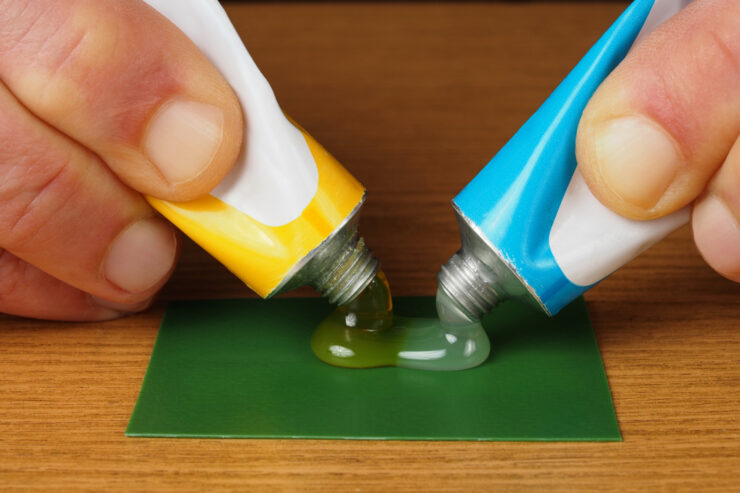Table of Contents
When it comes to adhesives, two names often dominate the conversation: super glue and epoxy. Both are powerhouse glues widely used for a variety of tasks, from simple home repairs to complex industrial assemblies. But when it comes down to strength and versatility, which one truly holds the upper hand? Let’s dive deep into the world of these two adhesives to determine which is stronger and more suited to your particular needs.
Basics: What Are They Made Of?
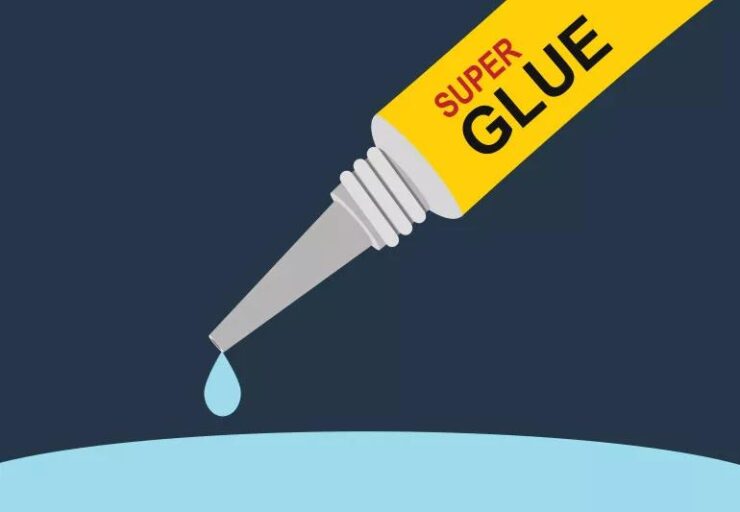
Before we pit them against each other, it’s crucial to understand what each adhesive is and what it’s made from. Super glue, or cyanoacrylate, is known for its rapid bonding capabilities. It works through a process where the liquid polymerizes in the presence of water vapor, bonding almost instantly to itself and the surfaces it contacts. This makes it a go-to for quick repairs where time is of the essence.
Epoxy, on the other hand, is a two-part adhesive, comprising a resin and a hardener that need to be mixed before use. This chemical reaction not only takes longer to set compared to super glue but also offers a different kind of strength, characterized by its resistance to weather, chemicals, and physical impact.
Tensile Strength: The Pulling Contest
When it comes to tensile strength, or the resistance to being pulled apart, epoxy generally outperforms super glue. The chemical bonding of epoxy creates a more robust molecular bond in cured state than the more brittle layer formed by super glue. This makes epoxy an excellent choice for projects requiring high durability and resistance to breakage under strain, such as in building and automotive repairs.
Shear Strength: Holding Against the Slide
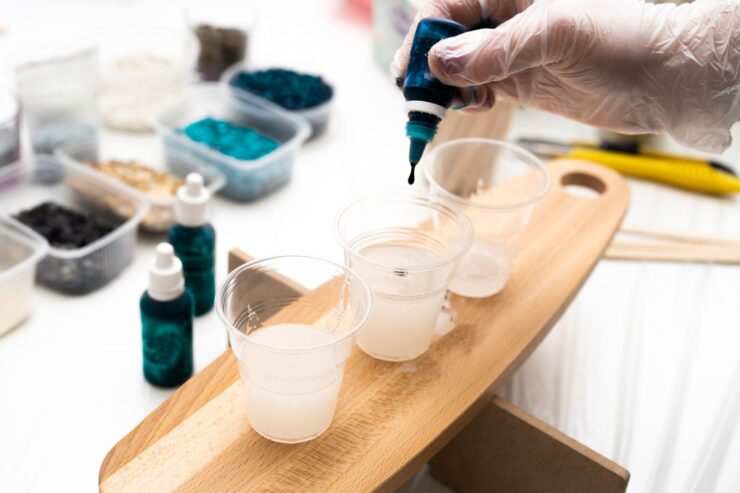
Shear strength, the ability to resist sliding forces parallel to the surface, is another crucial factor in choosing an adhesive. Epoxy often has superior shear strength due to its thick, hardened properties once cured, making it ideal for tasks that involve heavy loads or components under constant stress. Super glue, while providing a decent hold, is more susceptible to failing under shear stress due to its inherently brittle nature when cured.
Temperature and Environmental Resistance
Environmental factors play a significant role in determining the effectiveness of an adhesive. Epoxy excels in environments that subject it to high temperatures and corrosive chemicals. Its composition allows it to withstand harsh conditions without degrading, making it suitable for outdoor projects and in areas with extreme climatic conditions. Super glue, while versatile, does not hold up as well under high temperatures or direct sunlight, as it can become brittle and lose effectiveness.
Ease of Use and Application Precision
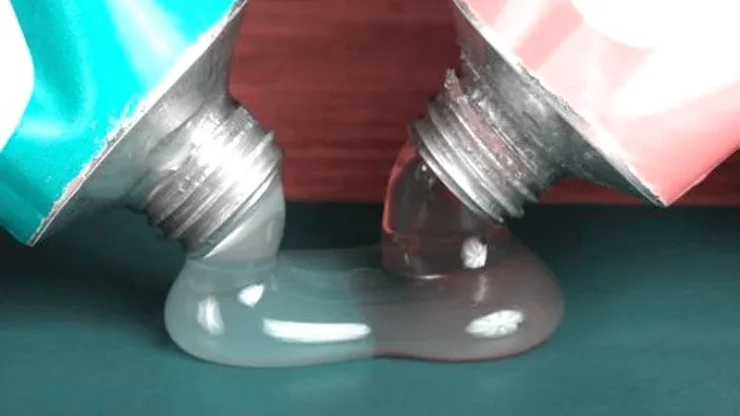
Super glue wins in the ease of use category. Its fast-setting nature and the no-mix application make it incredibly convenient for quick fixes and simple projects. Its ability to bond with a variety of surfaces with minimal preparation also makes it a popular choice for everyday use. However, for tasks that require more precise application or thicker layers of adhesive, epoxy’s two-part mixture allows for more control over the bonding process, albeit at the cost of additional preparation and curing time.
Versatility Across Materials
While both adhesives work across a range of materials, their effectiveness can vary depending on the substrates involved. Super glue is excellent for bonding small, non-porous items quickly and is particularly effective with materials like ceramics, some plastics, and glass. Epoxy, in contrast, is better suited for larger, more porous materials that may require a sturdier bond, such as wood, metal, and fiberglass.
Safety and Toxicity
Safety is another important consideration. Both adhesives emit fumes that can be harmful, but super glue can be particularly noxious if not used in a well-ventilated area. Epoxy’s components are generally more noxious before they cure, requiring careful handling and appropriate protective gear during application. Awareness and adherence to safety protocols are crucial when working with either adhesive to prevent skin contact and respiratory issues.
Longevity and Maintenance
Over time, the bond created by any adhesive can weaken due to environmental exposure or physical wear and tear. Epoxy generally offers superior longevity, especially in conditions involving water exposure, heavy loads, or chemical interactions. Its robust structure tends to maintain integrity over long periods, making it suitable for installations or repairs that are meant to last. Super glue, while effective for quick fixes, may deteriorate faster under the same conditions, requiring more frequent touch-ups or replacements.
Cost Efficiency
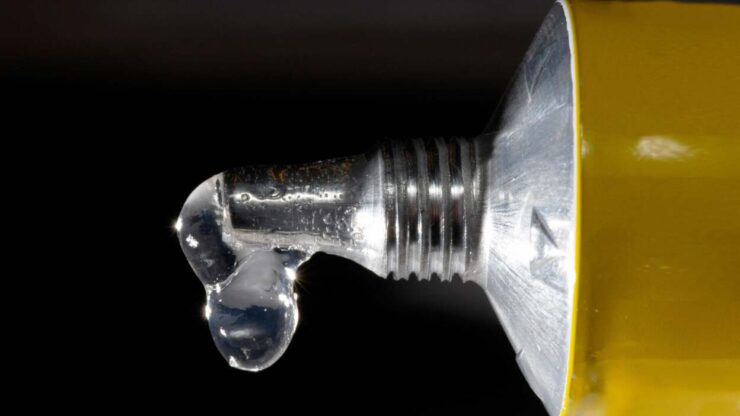
When considering the cost, super glue typically comes in smaller, more affordable packages suitable for one-time uses or small projects. This makes it an economical option for everyday household repairs. Epoxy, being a more industrial-strength adhesive, often comes in larger quantities and can be more expensive. However, the initial higher cost could be justified by its durability and the reduced need for reapplication over time, especially in professional or heavy-duty environments.
Specialized Uses
Each adhesive also shines in specialized applications. For instance, in the world of modeling and crafts, super glue is often preferred for its precision and clear drying, which is crucial for intricate parts and delicate assemblies. Epoxy, with its gap-filling capabilities, is favored in situations where you need to bond uneven surfaces or fill in spaces, such as in woodworking or when setting stones in jewelry.
Environmental Impact
From an environmental perspective, both adhesives have implications. Epoxy, while durable, consists of chemicals that can be more harmful to produce and dispose of compared to super glue. For those concerned with ecological impacts, choosing adhesives that are labeled as eco-friendly or that comply with stricter environmental standards can be a deciding factor. These products aim to reduce harmful emissions and are formulated to be safer for both users and the environment.
DIY and Professional Preferences
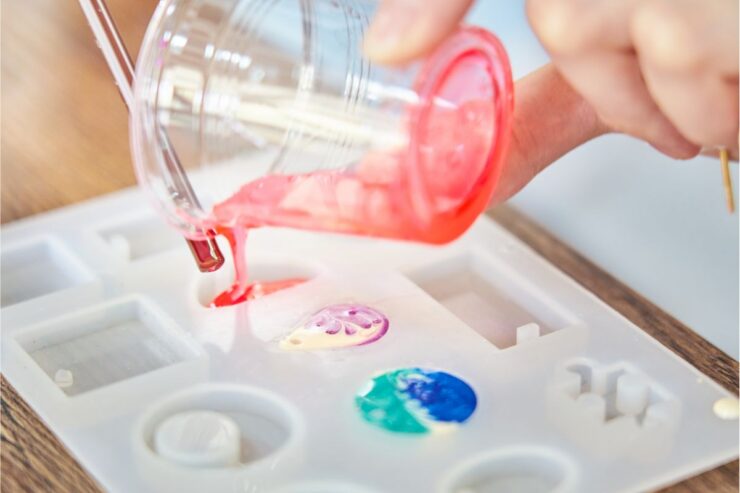
Among DIY enthusiasts and professionals, the choice between super glue and epoxy often comes down to the specific demands of their projects and their personal experience. Hobbyists might lean towards super glue for its quick setting time and ease of handling, while professionals might opt for epoxy for its strength and resilience in structural applications.
Advanced Composite Materials
In cutting-edge fields like aerospace, automotive, and construction, epoxies are part of a broader category of composite materials used for their advanced properties, such as enhanced strength-to-weight ratios, resistance to fatigue, and reduced susceptibility to corrosion. These applications highlight the crucial role of epoxy beyond conventional adhesive uses, serving as a structural component in the design of vehicles and buildings.

